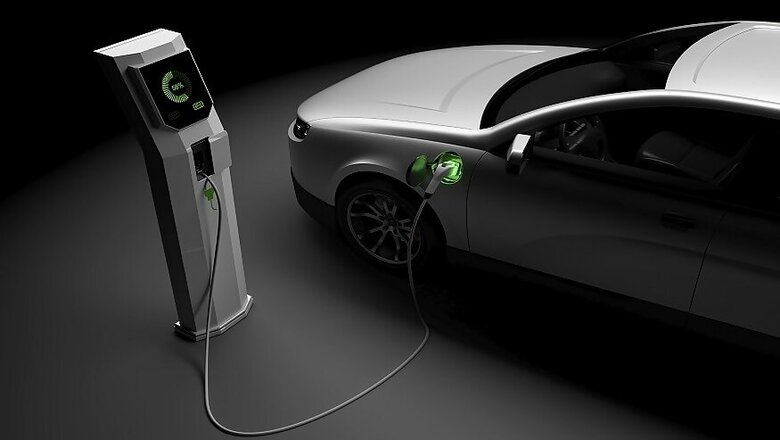
views
Automobile industry body SIAM welcomed government's move to reduce import tariff on imported parts of electric vehicles (EVs) for assembly in India saying it would trigger investments in critical components both from domestic and foreign players. The Society of Indian Autombile Manufacturers (SIAM), however, urged the government to reconsider raising of duty on battery cell to 5 per cent from zero saying as there is no local manufacturing at the moment, imported cells would become costlier and make introduction of EVs more difficult. The government's move to provide preferential import duty on CKD and SKD of electric vehicles vis-a-vis conventional vehicles will encourage electric mobility in the country, SIAM said in a statement.
"At the same time, government's intention to not allow import of completely built electric vehicles at a concessional rate is also in the right spirit of Make in India," it added. On Tuesday, the government had lowered customs duty on import of parts and components of such EVs to 10 to 15 per cent.
"This would help in creating supply and demand for electric vehicles. Government should allow these concessions for a few years to allow industry to achieve minimum viable scale. With improved scale of operations, localisation of these components would also happen," SIAM added.
On battery packs, the auto industry body said as there is no cell manufacturing in the country presently, the local battery pack with imported cells would become costlier and make introduction of electric vehicles more difficult.
"However, it is recognised that domestic cell manufacturing would be an important strategic goal for the country, we would recommend that import duty on cell can be reconsidered and kept at nil duty with an expiry date announced upfront to enable battery and automobile companies plan," it added.
In another statement, SIAM said a meeting of various stakeholders is required for proper implementation of colour stickers notifying type of fuel used, as a part of HSRP (high-security registration plates) from April 1, 2019 for new vehicles.
SIAM said after a notification by the transport ministry on December 6, 2018, the responsibility of providing the coloured sticker and HSRP has shifted from the HSRP vendor of the state transport departments to the vehicle manufacturers. "Since, the said notification raises several questions on implementation of HSRP by various stakeholders, a meeting is required with MoRTH, with all stakeholders, to iron out open issues," it said.




















Comments
0 comment